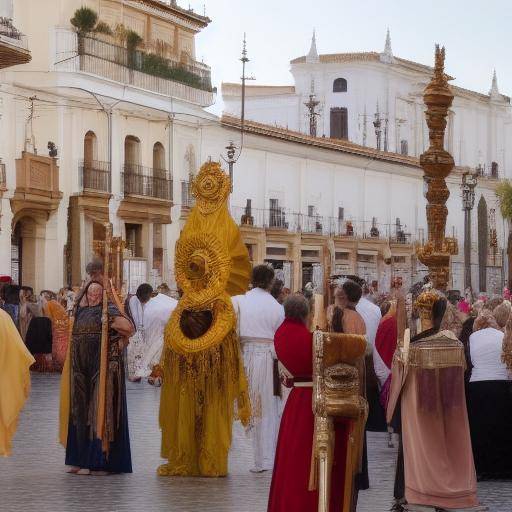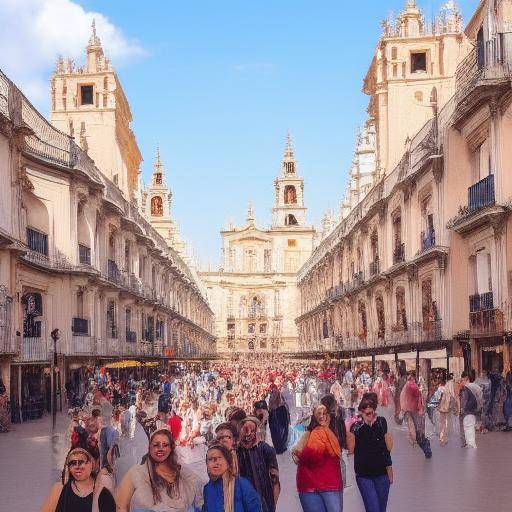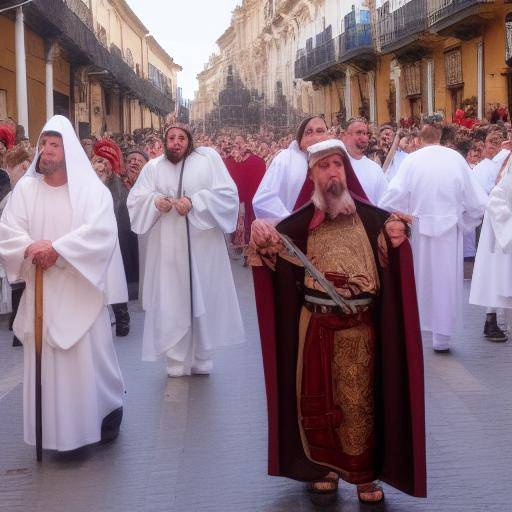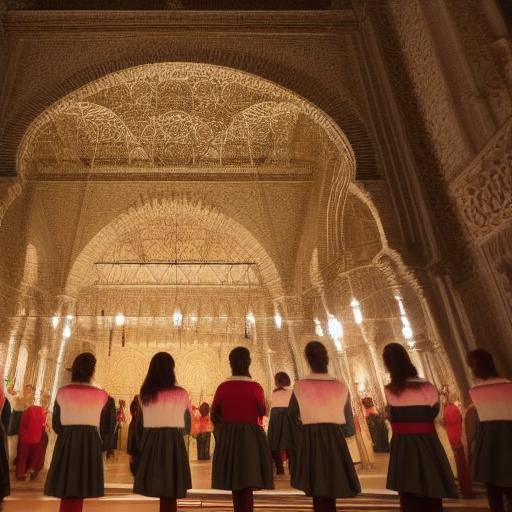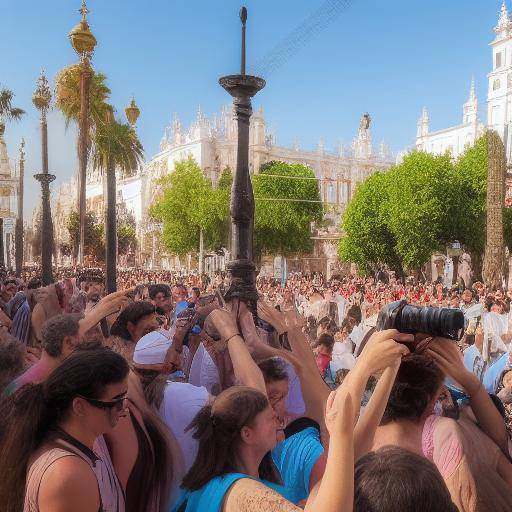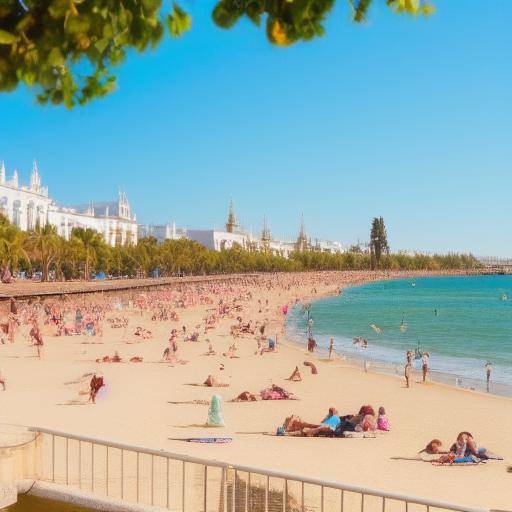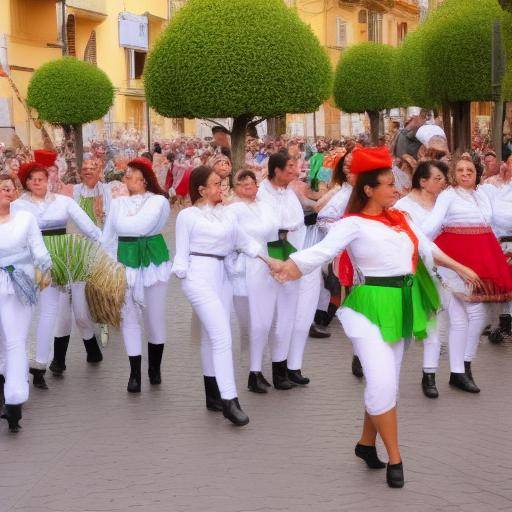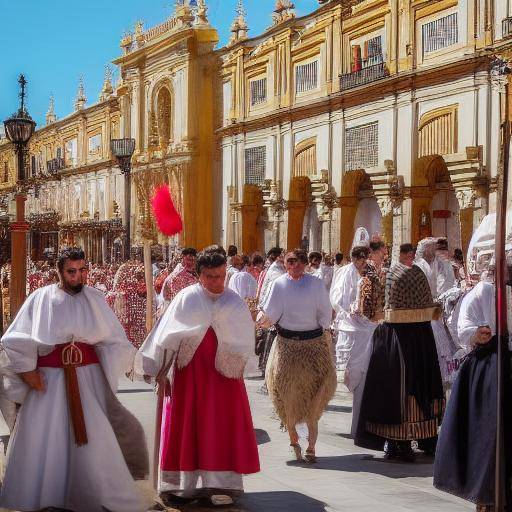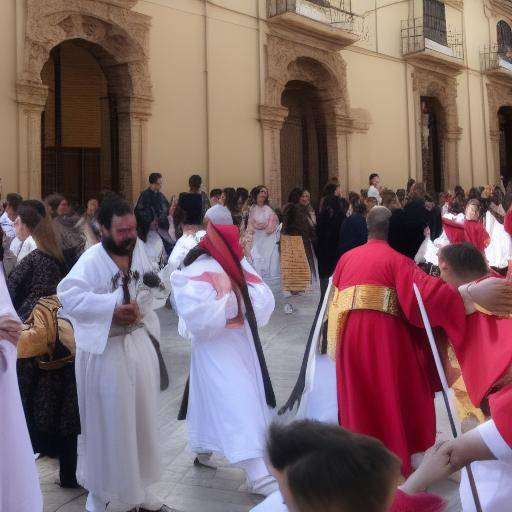
The Holy Week in Seville is a unique celebration with a rich history, deeply rooted tradition and deep devotion that attracts both locals and visitors to the region of Andalusia. In this article, we will explore the essence of Holy Week, the city of Seville and the Spanish tradition, capturing the magnificence of this festival, its historical origins, its cultural and religious impact, as well as its relevance in the current context. Join us on this journey through the Holy Week in Seville, where passion and devotion merge into an unforgettable experience.
Introduction
The Holy Week in Seville represents one of the most emblematic celebrations of the Spanish tradition, marked by its profound religious significance and a unique combination of fervor, history and culture. During this week, the streets of Seville are filled with color, music and devotion while the Sisters carry out impressive processions that captivate those who have the privilege to witness them. But what makes this celebration so special? What is its origin and meaning? Throughout this article, we will discover the magic and mystery surrounding the Holy Week in Seville, exploring its historical roots, its impact on the current society and its cultural and religious relevance.
History and Background
Holy Week, with its roots in Catholic tradition, dates back to centuries of history that have left a profound impression on Spanish culture. It can be traced back to the Middle Ages, when religious orders promoted devotion through theatrical representations of the Passion of Christ. Later, during the Renaissance, the Sisters began to organize public processions as a way of spreading the Catholic faith. These events became the framework for exhibiting works of art, sacred music and elaborate manifestations of faith.
In Seville, religious fervor is intertwined with Andalusian history, creating a unique Holy Week. The city has been an important religious centre since the Middle Ages, which has influenced the magnitude and splendor of its celebrations. The sisterhoods, some of which date back to the 15th century, play a fundamental role in organizing the processions, preserving centuries-old traditions and transmitting them from generation to generation.
Analysis in Deep
The Holy Week in Seville is not only a religious festival, but also an opportunity for the community to gather around its cultural heritage, strengthening its ties and preserving a tradition that has endured over the centuries. In addition, its economic impact cannot be overlooked, as it attracts thousands of visitors, generating a significant boost for the tourism industry in the region.
During Holy Week, the streets of Seville become a scene of fervor and devotion, but also a space for reflection and contemplation. The processions, often accompanied by sacred and chanting music, generate a unique atmosphere that merges the sacred with the cultural, attracting people of all ages and origins.
Exhaustive examination
Beyond its religious dimension, the Holy Week in Seville has been studied from various perspectives, which has made it possible to understand its social, emotional and artistic impact. Artists, academics and anthropologists have analyzed the influence of this celebration on the collective identity, as well as its implications in the cultural and tourist sphere.
The influence of Holy Week in the city of Seville transcends its borders, becoming an international symbol of Spanish culture and tradition. It attracts the attention of people from around the world, who come to the city to witness this unique event, whose tradition dates back centuries.
Comparative analysis
By comparing the city, its similarities and differences with other similar religious festivities in Spain, highlighting its uniqueness and roots in Andalusian culture. The Holy Week in Seville stands out for its majestic processions, where religious images are taken in steps by coasters, in contrast to other celebrations that opt for different manifestations of faith. However, the essence of devotion and fervor is a common denominator in all these festivities, revealing the profound spiritual connection present in the Spanish tradition.
Practical Tips and Accessible Recommendations
If you plan to attend Holy Week in Seville, it is important to prepare yourself for a unique experience. We recommend you to investigate the different processions, identify the points of interest, and be prepared for the crowds gathered to witness this show. It is also essential to respect religious traditions and manifestations, showing consideration and sensitivity to the celebration. Remember that Easter in Seville goes beyond a tourist event: it is a demonstration of faith and devotion rooted in the cultural identity of the region.
Industry Perspectives and Expert Reviews
Experts in history, anthropology, sacred art and tourism have provided various perspectives on the Holy Week in Seville, enriching the understanding of the cultural and social impact of this celebration. Their analysis provides an integral vision that spans from the religious dimension to their influence in the local economy, allowing us to appreciate the complexity and meaning of this festival.
Case Studies and Practical Applications
The Holy Week in Seville has been the subject of numerous case studies that highlight its relevance not only from a religious point of view, but also in terms of cultural heritage, tourism management and community development. The detailed analysis of these research reveals how Holy Week not only impacts the spiritual sphere, but also contributes to the enrichment of the social and economic fabric of the region.
Future Trends and Predictions
As the Holy Week in Seville continues to evolve, new trends and challenges are seen in its organization and promotion. The adaptation to contemporary demands, the preservation of ancestral traditions and the sustainable management of this emblematic event are aspects that generate interest and reflection on the future of this celebration.
Conclusion
The Holy Week in Seville is much more than a religious celebration; it is a historical legacy, a cultural manifestation and an expression of faith rooted in the Andalusian identity. Throughout the centuries, this festival has endured, keeping alive the history, tradition and devotion of its people. When visiting Seville during Holy Week, you will immerse yourself in a unique and unforgettable experience, allowing you to appreciate the confluence between faith, tradition and passion in a way that only Andalusia can offer.
FAQs
Why is Easter in Seville so emblematic?
The Holy Week in Seville is emblematic due to its deep roots in Andalusian culture, its impressive splendor and its combination of religious devotion with unique artistic and cultural manifestations.
What is the economic impact of Holy Week in Seville?
Holy Week generates a significant economic impact in Seville, attracting thousands of visitors and benefiting sectors such as tourism, hospitality and local trade.
How can I participate in the processions of Holy Week in Seville?
If you want to participate in the processions, it is advisable to contact local sisterhoods to engage you as a coastal or other roles, showing respect and consideration for religious traditions.
What is the best way to experience Easter in Seville as a visitor?
To live the Holy Week in Seville as a visitor, we recommend to inform you about the different processions and events, plan your tours, and immerse yourself in the atmosphere of devotion and culture that characterizes this holiday, always respecting religious traditions and manifestations.
How does Easter in Seville compare with other similar celebrations in Spain?
The Holy Week in Seville is distinguished by its magnitude, religious depth and artistic splendor, although it shares similarities in its devotion and manifestations with other religious festivities in Spain.
What is the role of the Sisters in the Holy Week of Seville?
The Sisters play a fundamental role in organizing and carrying out the processions, preserving traditions, fostering devotion and contributing to the cultural legacy of Holy Week in Seville.
What is the historical origin of Holy Week in Seville?
The Holy Week in Seville has its roots in the Middle Ages and the Renaissance, with the influence of religious orders and brotherhoods that have contributed to its evolution over the centuries.
Conclusion
Holy Week in Seville is a living testimony of tradition, passion and devotion rooted in Andalusian culture. History, religious fervor, art and celebration are intertwined in a unique way during this event, creating an unforgettable experience both for those who participate directly and for those who observe it with respect and admiration. Throughout this article, we have explored the essence of Holy Week in Seville, its history, its relevance and its cultural and religious importance. We invite you to immerse yourself in this unique celebration and discover the magic that makes it an invaluable heritage of Andalusia.

